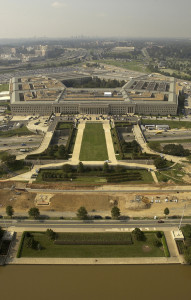On Monday, a New York Times editorial drew attention to the treatment of the press in a Law of War manual released earlier this year. Of particular concern, the manual described how easy it could be to mistake journalism for spying: “Reporting on military operations can be very similar to collecting intelligence or even spying.” The manual also stated that “States may need to censor journalists’ work or take other security measures so that journalists do not reveal sensitive information to the enemy.”
But the manual only implicitly admitted that it included the United States among the states that might need to censor journalists.
Far less attention has been given to updated Air Force Instructions on Media Operations issued last month and posted by Secrecy News. After dealing with FOIA, reporting on casualties and other issues that may affect privacy and security, and describing the utility of a “Straight Talk” line — identified as such — in times of crisis, the instructions describe what happens when an accident or other incident exposes classified information, both on or off a military base.
If something happens off a military base and journalists start taking photographs, a Public Affairs officer has limited options. If there are civilian authorities present, the instructions say, “Air Force officials must ask [them] to stop further photography of the exposed classified information and to collect all materials with that coverage.” Effectively, the Air Force expects local cops to conduct censorship for the military.
But “if no civilian law enforcement authorities are on the scene and media representatives take unauthorized pictures,” the instructions explain, “do not seize the materials or hold the photographer.” Instead, the Public Affairs office should call the photographer’s editor and claim the photographer is breaking the law, citing two parts of the Espionage Act that apply on defense installations and another applying to unauthorized possession of defense information. “Explain failure to return the material to military authorities violates federal law (Title 18, United States Code, Sections 793(e), 795 and 797).”
Admittedly, threatening editors that laws limited to military bases apply everywhere in the US falls short of seizing a journalist when she reports on information available in public space the military has deemed to be classified. At least the Air Force clearly instructs that kind of censorship shouldn’t go on.



